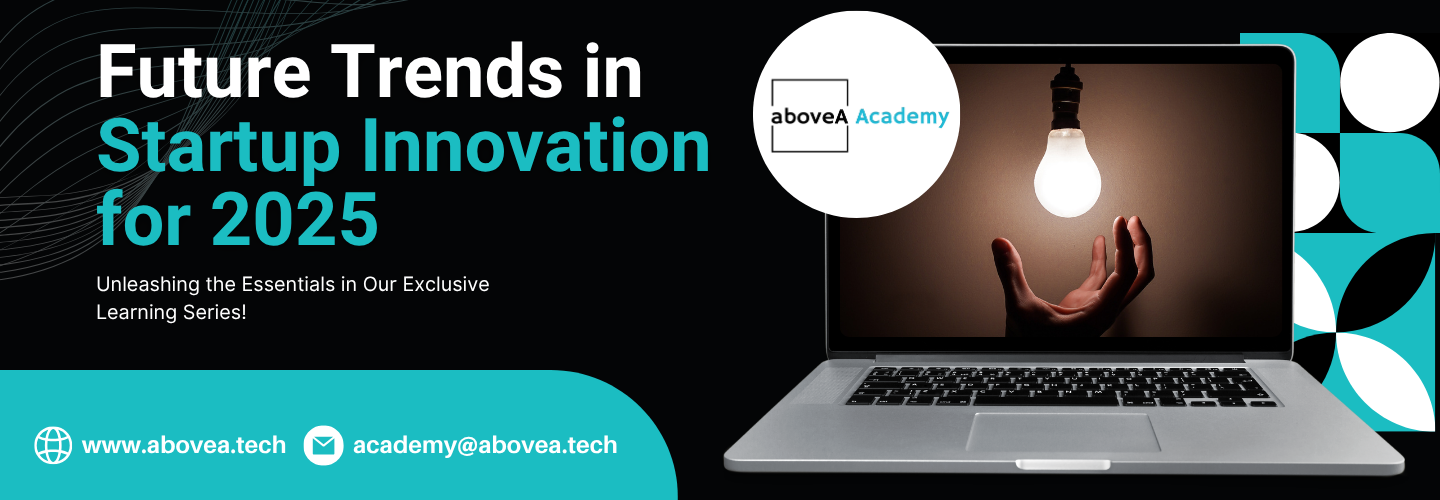
What Are the Future Trends in Startup Innovation for 2025?
Startup innovation is changing faster than ever before. Fresh doors are opening for entrepreneurs due to the emergence of new tools, new ideas, and new ways of thinking. The future of startups all looks different, from artificial intelligence to climate change solutions.
This article will guide you through future trends in startup innovation. So, if you’re wondering “what will help my business stand out ?” you’re in the right place. Whether you’re building your first startup or thinking about launching something new, these trends are important to watch closely.
How Startup Innovation Got Here
Startups didn’t always move this fast. A few years ago, starting a business was much harder. People needed lots of money, time, and tech skills. Many founders had to learn things the hard way. Some built everything on their own. Others failed before they figured it out. But things began to change.
New tools made building easier. Sites like Shopify and WordPress let anyone launch fast. Stripe made payments simple. Social media helped people find new customers without big ads. Suddenly, a small idea could turn into a business in just a few days.
Then the world changed again.
When COVID hit, people worked from home. Startups built tools to help teams work from anywhere. AI started doing things like writing, helping customers, or testing ideas. Now, even one person can build something amazing.
Also, customers became part of the team. They gave feedback, shared products, and helped shape ideas. That made startups stronger and smarter.
So today, you don’t just need a big idea- you need the right tools, a clear purpose, and a real connection with your audience. And that’s where the next part comes in. Let’s look at what’s coming next in the world of startups.
1. AI-Powered Everything
You saw it coming, didn’t you? With the ever-changing and improving technology, artificial intelligence has become the backbone of many new startups. In the past, AI was a tool that only big companies used, but now technology has become more accessible to all. Today, more businesses are using AI to create products, do research, talk to customers, and automate tasks such as writing marketing content and testing product ideas.
The most common use of AI in businesses is an AI chatbot. Many businesses use it to handle customer questions. From this example alone, we can see that AI is a powerful tool for any startup. They save time and money, and in most cases are available to customers 24/7.
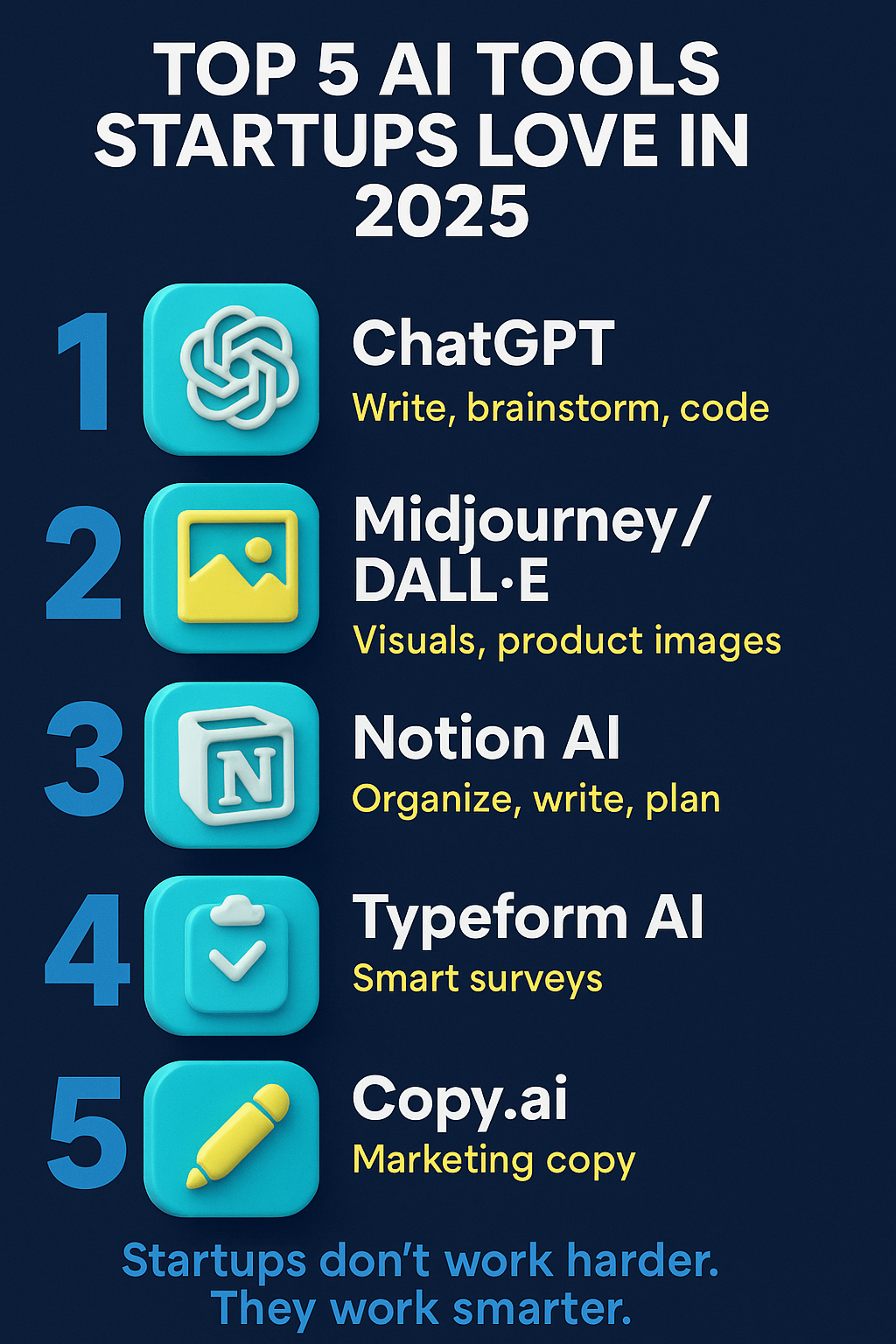
2. Climate and Sustainability Startups
The world needs cleaner air, better energy, and smarter ways to manage resources. Thus, more and more startups have turned their attention to solving climate problems and being more sustainable. One of the best examples of these startups is ClimateTech startups such as Jackery, Northvolt, ZeroAvia, and Pachama. These Climate Tech startups focus on innovating solutions to tackle climate change and focus on sustainability, renewable energy, and reducing carbon footprints.
Many investors, as well as governments, are putting money into these kinds of companies because they want to support :
- Solar energy tools
- Electric transportation
- Green agriculture, like vertical farming
- Carbon capture technology
There is a big opportunity for startups. Solving environmental problems is not just for the good of the Earth; it’s also good for your business. Founders should think about how their product will help people and the planet.
3. No-Code and Low-Code Platforms
One of the biggest shifts in today’s startup company is that founders no longer need to know how to code to start a tech company. People can easily build websites, apps, and automations without writing any code, all thanks to no-code and low-code tools. Tools such as:
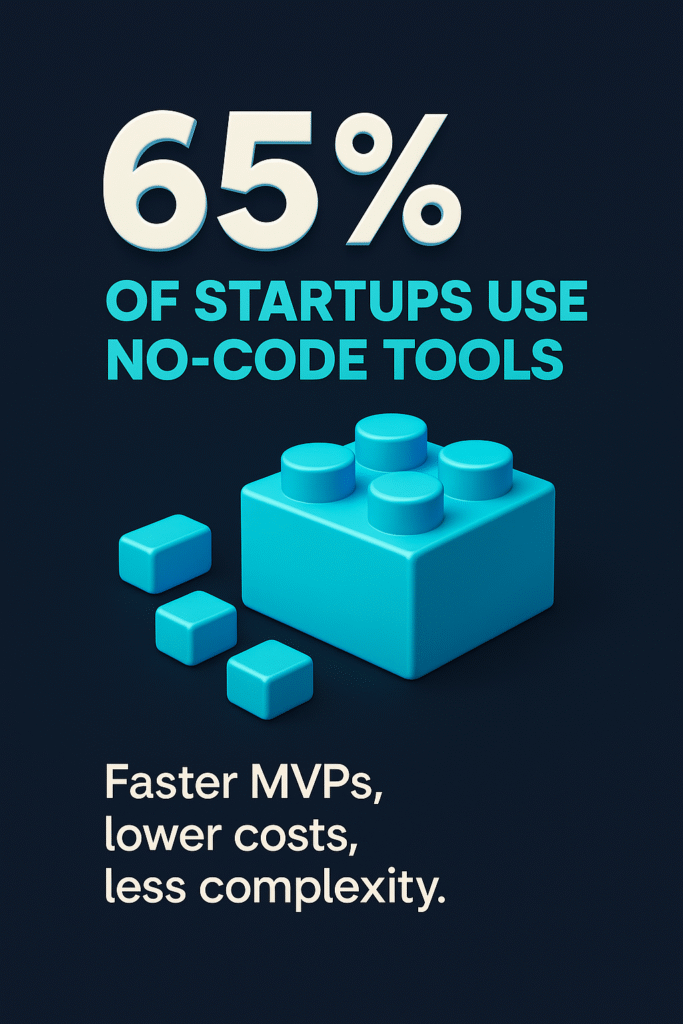
These tools are great because they help startups launch faster, test ideas with little cost, and make changes without needing developers. This trend lowers the barrier to entry, and people can now easily become founders even if they don’t have the necessary tech skills.
4. Community-First Business Models
There is a huge shift in today’s business model. Businesses today are more focused on building relationships with customers, and less priority is being placed on selling. This is all because the community, like your users, fans, and customers, plays a bigger role in shaping the product.
New companies are building:
- Discord communities before launch
- Private beta groups for feedback
- User advisory boards
As a user, I can say that it is a smart move to include your community early because they’ll feel more connected and loyal. Plus, they’ll tell others! A strong brand builds on real conversions with users and less on ads.
Community-Led vs Traditional Startup Growth
Let’s have a look at the differences between community-led and Traditional Growth.
Features | Traditional Startups | community -Led startups |
Launch strategy | Product first | Community first |
Feedback loop | After launch | Before and after launch |
Marketing style | Paid ads | Word of mouth |
Customer loyalty | Medium | Very high |
Global and Remote-First Team
We all remember the COVID pandemic, when remote working became popular. It has now become the default for many startups. Many businesses have teams spread across different parts of the world, but still manage to work well together.
In some ways, this change has improved innovations. Startups are now building tools that help remote teams improve their efficiency.
Examples of these tools are :
- Virtual offices
- Async work tools that allow for efficient work times
- And Payroll services for global hires
Remote working in startups also enables businesses to be able to hire the best talent all over the world, and not just local talent.
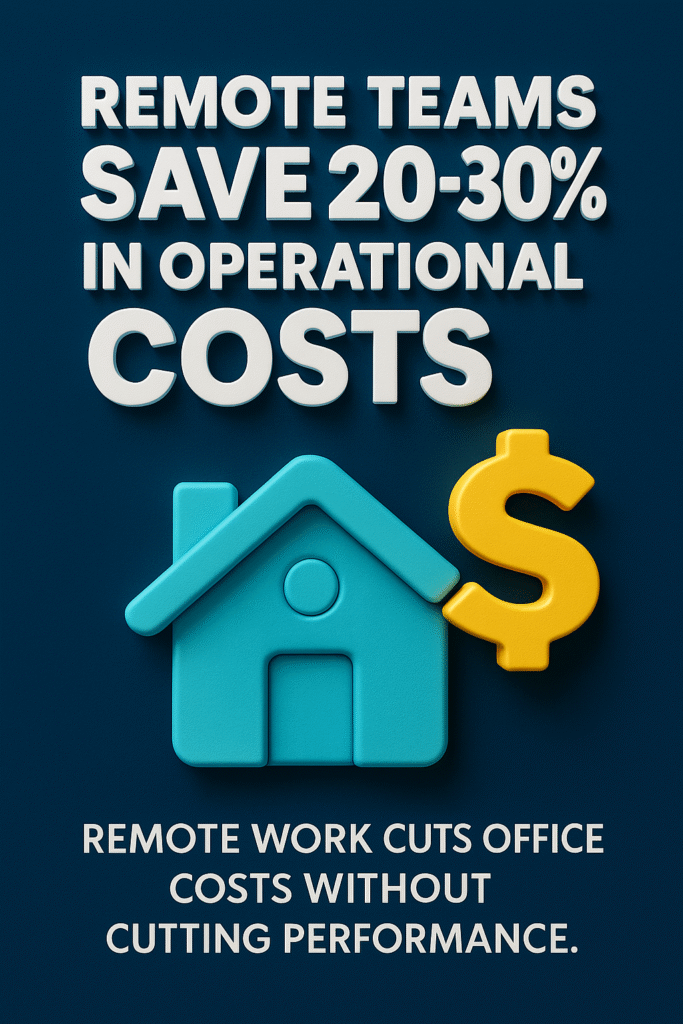
Startup Incubators and Mini Accelerators
According to explodingtopics.com, a startling 70% of new businesses will fail in years 2 through 5. Thus, getting help as a startup founder is more important than ever.
Programs that could help new startups grow without the risk of failure include programs like online startup bootcamps, creator accelerators, and mini startup studios. A great example of this is aboveA Academy, which helps people at two stages:
- People who have an idea but don’t know where to start
- People who’ve built something but need help launching and growing
These programs could benefit startup founders in many ways. Let’s have a look:
- Mentorship from experts can guide your product, branding, marketing, and funding journey. Good advice early on can save you from expensive mistakes later.
- You’re provided with structured training to gain insights into business model design, user testing, as well as branding and content strategy.
- A chance to increase your funds or form a partnership through networking and investor access.
- You will also gain community support from other founders.
- And you can gain more trust and visibility through your mentors.
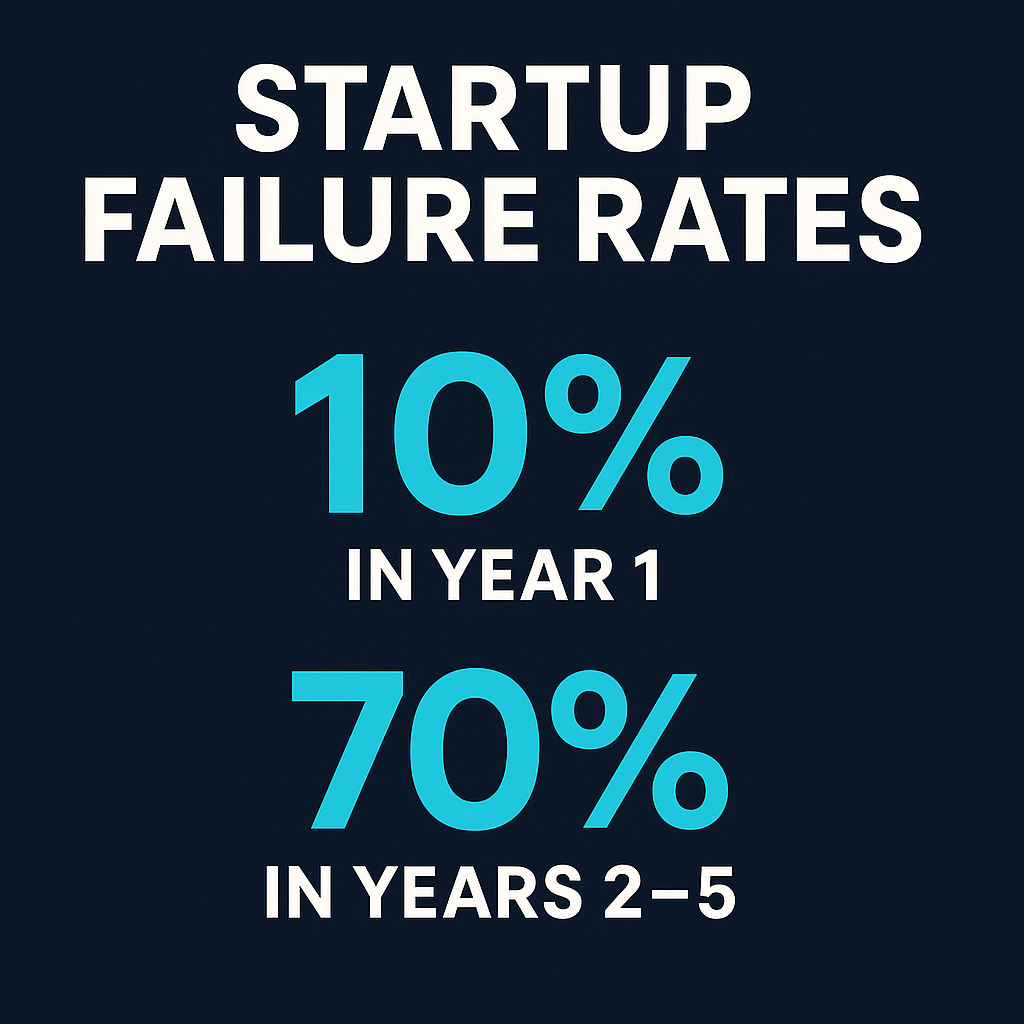
Mixed Reality and the Next Internet
Tools like Virtual reality (VR), augmented reality (AR), and the metaverse are evolving at a rapid pace. Many startups are using these tools for:
- Training simulations
- Virtual coworking spaces
- Online education
- AR shopping and virtual stores
Many startups now have access to these tools because tech is now more affordable than it was in the past. So, a startup that can blend the real and digital worlds together will stand out and be able to create new kinds of experiences.
Fundings Through Tokens and Crowds
One of the biggest issues of creating a startup is funding. Many startups are now finding new ways to raise money. Previously, the only way to get funds was through big investors, but now many startups are turning to the crowd or using tokens. Examples of these platforms are:
- Crowdfunding platforms like Kickstarter and Republic
- Tokenized ownership where users hold small shares’
- Decentralized fundraising through Web3 tools
This trend lets fans and customers become co-owners or early backers. It also spreads risk and brings in more support early.
Final Thoughts
Startups’ innovation is and always will be fast-moving, but that doesn’t mean you have to chase every trend. Stick to your purpose and stay close to your community.
Meet the Author

Teerisra Donlunwad
She is our talented content marketing specialist from Thailand. Currently in her senior year studying marketing, she supports projects like the aboveA Academy and weekly TikTok content. Her creativity and dedication shine through each video, making her a key team member driving fresh, engaging content every week.

